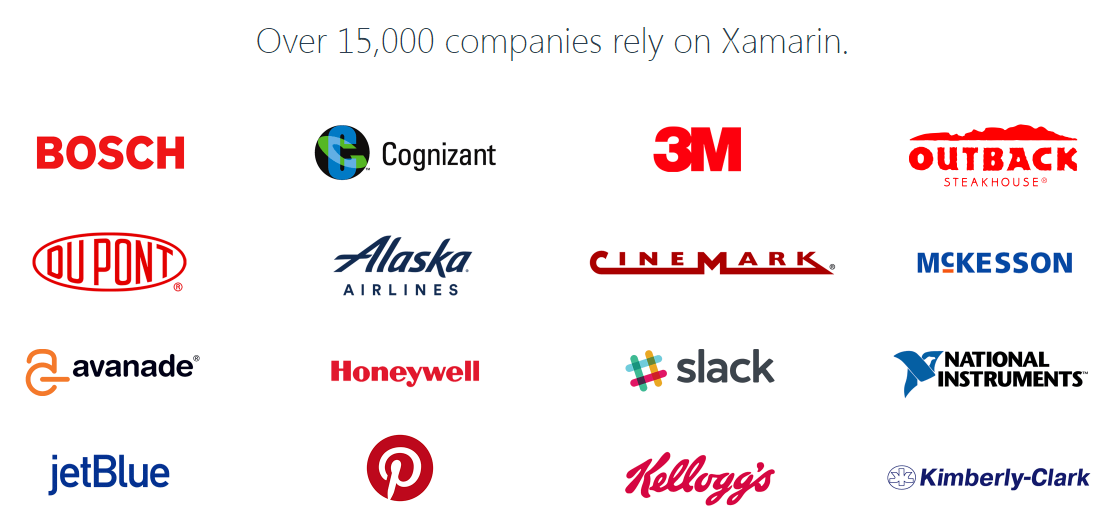
Xamarin, React Native, and Ionic are among the hottest mobile app development tools. These are amazing cross-platform frameworks that let you develop mobile apps very fast.
With these tools, you don’t need to build multiple apps separately for multiple platforms such as Android and iOS. You can share most of the code, which means you can get 2 or 3 apps with the time and effort of building just one mobile app.
All of these frameworks are popular and used by small and big companies all over the world. How to choose a framework that is most suitable for your business?
Let’s discuss some important factors such as development environment, ease of use, app speed, etc. for each framework so that these three tools can be compared and that you can select the right framework for your work by taking into consideration these factors.
After reading this article, I hope you will be able to easily decide which framework would be the best fit for your next app(s).
So let’s start!

General overview
Xamarin: Xamarin is an open-source framework, developed by Microsoft, which lets you build apps for Windows, iOS, and Android and lets you code in C#. It was released on May 16, 2011. The official website is https://www.xamarin.com.
React Native: React Native is also an open-source framework, it’s developed by Facebook. It allows you to build iOS and Android apps and lets you code in JavaScript and React. It was released in March, 2015. The official website can be found at https://facebook.github.io/react-native/.
Ionic: Ionic is also an open-source mobile app development framework, it’s developed by Drifty Co. Later, the brand name was changed to Ionic. This tool can be used to build Windows, Android, and iOS mobile apps. The initial release of Ionic took place in 2013. Ionic lets you code in web development languages such as HTML5, JavaScript, CSS, and AngularJS. The official website is https://ionicframework.com/.
Development environment
Xamarin: The development environment for Xamarin is Visual Studio. Although you can use other IDEs for this framework, it will be harder to use them for Xamarin. Visual Studio is the most suitable development environment for this tool and it’s the official development environment. Visual Studio with Xamarin can be downloaded from this link.
React Native: For React Native, you can use any IDE or text editor such as Atom, Visual Studio Code, Sublime Text, etc. There’s a great flexibility because you can code in the IDE of your choice.
Ionic: You can use Ionic Creator to build mobile apps using Ionic and can use the code editor inside Ionic Creator to write code. You can also use other IDEs and text editors such as Visual Studio Code and Atom.
Ease of use and development time
Xamarin: Xamarin is extremely easy to use in the sense that you get all the mobile app development tools in one place in Visual Studio. These tools make your app development process very easy. If your developers have used Visual Studio and C# before, they will find it easy to build mobile apps using Xamarin. Controls and layouts available in the Xamarin.forms and the Xamarin plugins make the development process faster.
React Native: React Native is also easy to use because your developers can code in a text editor they are most comfortable with. And it gives you features such as Hot Reloading that lets you reload your mobile app instantly and you don’t need to recompile your app to load it. This feature makes your app development work a lot easier. And if your developers are experienced JavaScript and React coders, they will find React Native very easy to use. There are many React Native ready-to-use components and elements available on the Internet, which speed up the development process.
Ionic: Between these three frameworks, Ionic gives you the easiest way to develop mobile apps because it lets you build a large part of your app by just drag-and-drop. You can drag and drop the pre-built components and develop your app faster. The native plugins also help you build an app faster.
App speed
Xamarin: Xamarin uses platform-specific hardware acceleration to give you great performance for your app. With Xamarin, you can achieve near-native performance.
React Native: React Native also gives you near-native performance. With React Native, you can build a real mobile app. You can also build a part of your app using native code directly to improve app speed.
Ionic: Performance of apps built with Ionic is good but not as good as apps built with Xamarin and React Native. Ionic is a great choice when you need to develop many apps, fast and when app speed is not that important.
Market share
Xamarin: Over 15,000 companies including big names such as Cognizant, BOSCH, and 3M use Xamarin.
React Native: Fortune 500 companies and popular startups are using this framework. Apps built with Xamarin are Facebook, Skype, F8, Instagram, Facebook Ads Manager, Airbnb, Walmart, Tesla, and so on.

[Source: React Native official site]
Ionic: Big companies like Microsoft, Adobe, and IBM use Ionic.
So which one is better?
Now you have to ask yourself which mobile app development tool would be the right fit for your business. Different companies have different requirements and situations. At your company, which framework would be suitable? You have to take into consideration the important factors mentioned in this post while choosing a framework.
If performance is not that important to you and you need to build several apps in a short time, you can select Ionic. To give you an example, if your company builds mobile apps for various clients and your client’s budget is low, you may select Ionic for building mobile apps for them.
Both Xamarin and React Native provide great performance. So if you want to build high-performance apps, you can use any of them. If your developers are comfortable with Visual Studio and C#, you can choose Xamarin. And if they are passionate about JavaScript, you can select React Native.
If you need to build mobile apps, you can email us at hello@virtualspirit.me or call us at +60197570530. We have experts who can develop mobile apps for you using React Native and Ionic.




